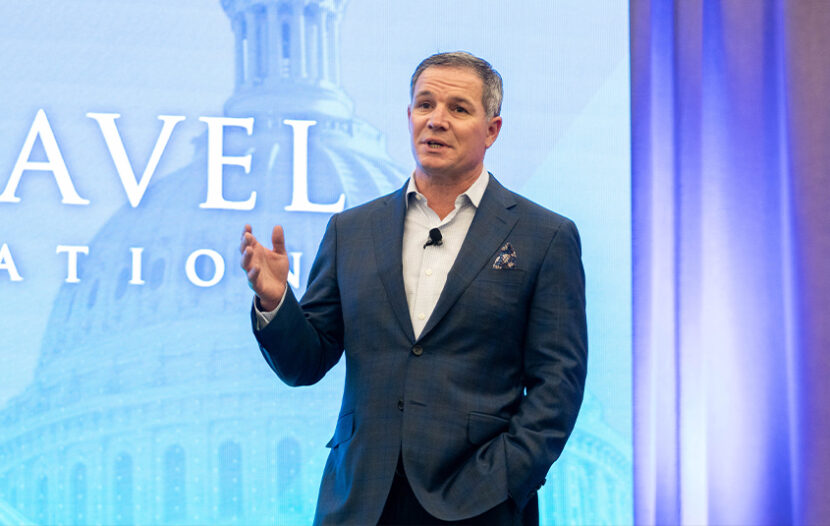LOS ANGELES — The U.S. Travel Association has announced the formation of a special commission tasked with ensuring seamless and secure travel into the United States.
Speaking at IPW 2024, which took place in Los Angeles from May 3-7, Geoff Freeman, President and CEO of the U.S. Travel Association, shed light on the ongoing challenges and potential opportunities facing the U.S. travel industry today.
Noting a significant drop in international visitors since the pandemic’s onset, Freeman said: “And the end of 2019, we had 79 million visitors internationally; at the end of 2023, we had 67 million, only 84% of pre-pandemic levels.”
According to Freeman, the U.S. has experienced a stark reversal in its trade balance, from a US$12 billion travel trade surplus pre-pandemic to a $50 billion deficit at the end of last year. He identified uncontrollable factors impacting these numbers, including the strength of the U.S. dollar and limitations on flight routes over Russian airspace, which are “a major inhibitor for bringing Asian travelers to the United States.”
However, Freeman pointed out several areas where proactive measures could boost the U.S. travel sector, including visa processing and customs procedures. Highlighting the disparity in visa wait times, he noted: “If you’re in Colombia and want to come to the United States, the wait times are over 600 days. If you’re in Mexico, the wait time’s over 800. If you’re in India, wait times have been reduced to between 50 to 200 days.”
Emphasizing that these issues are addressable, Freeman is calling on the U.S. administration to “set a goal of 30 days or less to process all visas at any consulate around the world.”
He also criticized the U.S. customs experience, with travellers often having to wait more than two hours to enter the country after their flights, as well as the inefficient process of re-screening baggage for travellers making domestic connections.
In response to these challenges, Freeman announced the formation of a commission comprised of former government officials and private sector experts that’s aimed at proposing reforms to enhance the U.S. as a travel destination. Following recent meetings with high-ranking government officials, including at the White House, he said he is “cautiously optimistic that the administration, others in government are waking up and heeding the call to address these issues.”
New technologies, he added, would help streamline travel processes, which will be crucial ahead of major international events like the 2026 World Cup and the 2028 Summer Olympics in Los Angeles on the horizon.

